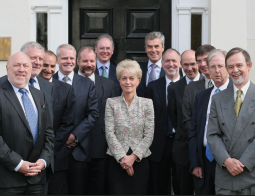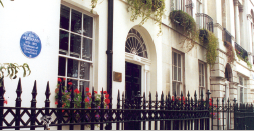In this fifth article from the British Cardiovascular Society (BCS), Professor Keith Fox, BCS President, looks to the future of a changing healthcare environment.
The past year and what lies ahead

For each of our key BCS Divisions, the
Vice-Presidents have not only set out strategic objectives but have also implemented the first stages of these plans – while also responding to all the external issues that impact upon cardiology. A huge tribute goes to the work
of the BCS Executive and the respective BCS Committees. Without this personal effort and major time commitment none of our achievements would have been possible.
Education and research
Dr Iain Simpson, Vice-President for Education and Research, has set out our educational strategy – clear tracks have been set in education and continuing professional development for trained specialists, dedicated sessions for trainees and an ‘innovation track’ consisting of clinical, translational and basic science. Dr Simpson completes his term this year, having made a huge impact on our education programme. We are delighted that Dr Sarah Clarke will start her Vice-Presidency of the Education and Research Division having already made excellent contributions to communications and education.
Despite the financial climate, we held a dynamic and successful conference in 2010 with increased participation. We have done this by structuring the conference to directly meet the needs of our membership and Affiliated Groups. Importantly for our BCS Annual Conference, we have worked with Affiliated Groups to develop highly relevant and integrated programmes. This is important to provide key information on who needs
sub-specialty referral and what new developments impact upon symptoms and outcome. Hence, the BCS Annual Conference aims to complement, not compete with, the Affiliated Groups’ own conferences.
We have been successful in establishing a partnership with the British Heart Foundation to support first the basic science track of the BCS Annual Conference (linked to the British Atherosclerosis Society and the British Society for Cardiovascular Research) and following the increased attendance and success of this track we now have funding support from the British Heart Foundation for the clinical/translational science track in the conference this year. This not only underpins and strengthens our programme but also allows us to invite key international speakers. In 2010, the National Training Day in December was a great success as was the BCS & Mayo Clinic Cardiology Review Course, which attracted a record number of participants (over 260).
With the California Chapter of the American College of Cardiology (ACC), we have developed a ‘twinning programme’ of educational activities, a bidirectional fellowship and new preceptorships (opportunities for short-term experience and training in specialist centres in California, and reciprocal places in the UK).
Training
Dr Jim Hall, Vice-President for the Training Division and also the Chair of the Specialist Advisory Committee in Cardiology, is helping to ensure the Training Programmes are well developed. We will again run the Knowledge Based Assessment for StRs in Cardiology at the BCS Annual Conference. Workforce planning is challenging, especially in light of the proposed healthcare reform, and a great deal of work has gone into ensuring that we meet the cardiology workforce needs, for the medium and long term not just those of the immediate financial constraints.
Clinical standards
The Clinical Standards Division, led by Vice-President Dr Simon Ray, has been very active. The Imaging Council is innovative and links a range of imaging modalities with the aim of defining common standards and devising the most appropriate pathways for investigating cardiology patients. Through the hard work of the Clinical Standards Committees, the Map of Medicine Pathways have been substantially revised and improved, and this work is conducted in conjunction with the Royal College of Physicians. We see the Maps of Medicine as increasingly important, alongside National Institute for Health and Clinical Excellence (NICE) guidance, in providing a ‘tool box’ for new healthcare commissioners.
Corporate and financial affairs
Our Corporate and Financial Affairs Division has been expertly led by Vice-President Professor Derek Yellon. We have managed to reduce our costs and diversify our income streams. This is a healthy position where income to the Society comes not only from subscriptions and the Annual Conference but also from our co-ownership of Heart, with BMJ Publishing. Heart continues to flourish and this is a real tribute to the editorial team and to Professor Adam Timmis. During the turbulent financial crisis Professor Yellon and the Finance Committee have sought expert external advice and guided us through this difficult time. Because of this, we can continue to develop and embark on new initiatives.
Thanks

At the 2011 Annual Conference Dr Charles Knight will step down as Honorary Secretary and we owe him a huge debt of gratitude for all his work behind the scenes. Our membership numbers have grown to 2,250 and we now have a more active voice in the public domain through the BCS Press Office.
Above all, we must thank our Chief Executive, Steven Yeats, and the staff of the BCS – we have a vibrant, busy and productive organisation.
